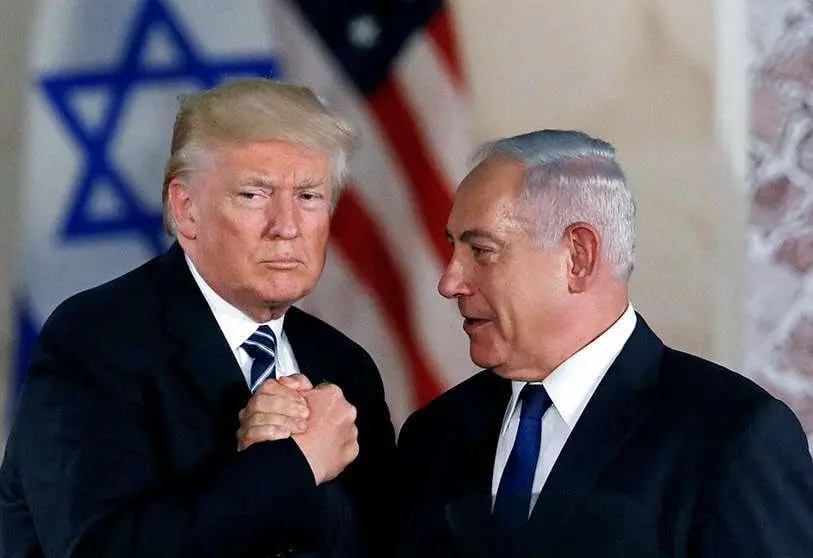Netanyahu denounces "electoral fraud" and follows in Donald Trump's footsteps

Israel is going through one of its most tense moments in the political sphere, the inability to form a stable government has provoked a climate of tension in the country's political sphere that has spread to the population. After four elections in less than two years, the current prime minister, Benjamin Netanyahu, has been unable to muster the necessary support to stay in office and is closer than ever to being forced out of office after 12 years.
With the formation of a government led by the ultra-nationalist Naftali Bennet and the centrist Yair Lapid imminent, Netanyahu is following in the footsteps of his good friend Donald Trump and denouncing "electoral fraud". "We are witnessing the biggest election fraud in the history of the country, in my opinion in the history of any democracy," Netanyahu spat during a speech to members of his Likud party.

"The people rightly feel cheated and are responding," Netanyahu pointed to Yamina party leader Naftali Bennet, who before the election had pledged not to associate with left-wing, centrist and Arab parties. The incumbent prime minister's statements have contributed to worsening the atmosphere of tension among the population. In recent days several members of the parties that make up the new government's coalition have been threatened.
The climate of tension in Israel has reached such a point that the head of the Shin Bet Internal Security Service, Nadav Argaman, issued a statement in which he expressed concern about "an increase in violent discourse, particularly on social media". "This discourse can be interpreted among certain groups or individuals as one that enables violent and illegal acts that may even cause physical harm," according to the security agency's own reports. Argaman has also called on political and religious leaders to tone down possible incitement and show responsibility.

Several Israeli media have compared this climate of political tension to the days before the 1995 assassination of then prime minister Yitzhak Rabin, who was shot by a Jewish ultra-nationalist for seeking a land deal in exchange for peace with the Palestinians. The left has for years accused Netanyahu, then head of the opposition, of involvement in the incitement that preceded the assassination, but the current prime minister has repeatedly denied the accusations.
For their part, Lapid and Bennet have said they hope their "unity government" will heal the deep political divisions among Israelis and end hatred. "Let it go and allow Israel to move forward," urged Yamina leader Naftali Bennet to Netanyahu. "The Israeli regime is not a monarchy and no one has a monopoly on power", the Yamina leader reproached during a public appearance. He also asked Knesset Speaker Yariv Levin not to delay the vote on the new government.

Despite continuous requests to bring forward the vote of confidence in the Knesset, Speaker of Parliament Yariv Levin has turned a deaf ear and has avoided pronouncing himself on when the new government would be submitted to a vote of confidence and thus be able to be sworn in. Levin has only said that he would announce the day of the vote and the swearing-in "later". A fact that only generates more uncertainty and pressure in the face of a new government that aims to put an end to Benjamin Netanyahu's 12 years of leadership.
Tensions could escalate further later this week, when a right-wing Jewish march is expected to pass through the Damascus Gate in Jerusalem's Old City. Although the authorities have cancelled the event for fear that it could reignite tensions between the Jewish and Arab populations, the leader of the far-right Religious Zionism party called the decision to delay the march "a shameful capitulation to Hamas terror and threats". Many ultra-nationalist religious leaders have also insisted on holding the march despite the authorities' refusal.








